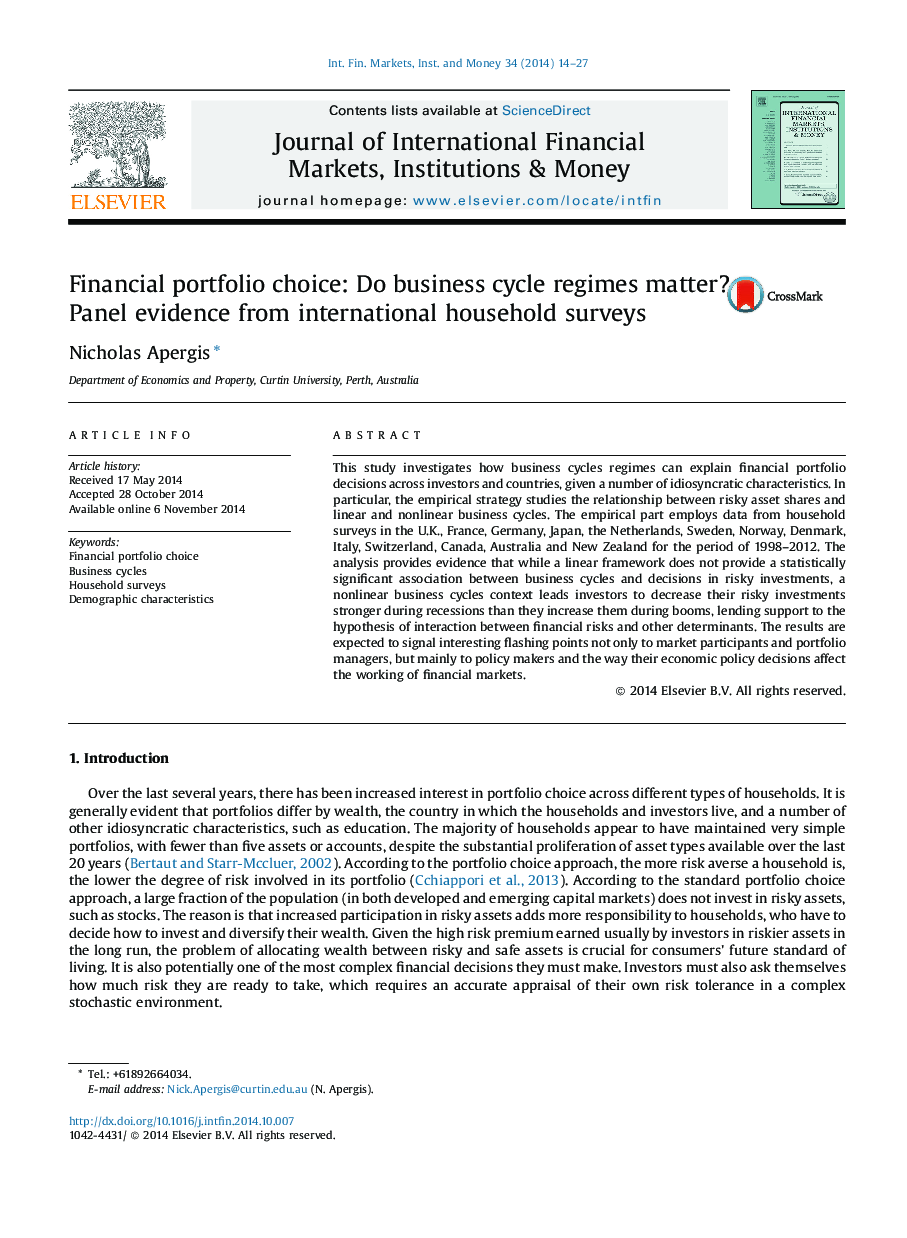| Article ID | Journal | Published Year | Pages | File Type |
|---|---|---|---|---|
| 7364683 | Journal of International Financial Markets, Institutions and Money | 2015 | 14 Pages |
Abstract
This study investigates how business cycles regimes can explain financial portfolio decisions across investors and countries, given a number of idiosyncratic characteristics. In particular, the empirical strategy studies the relationship between risky asset shares and linear and nonlinear business cycles. The empirical part employs data from household surveys in the U.K., France, Germany, Japan, the Netherlands, Sweden, Norway, Denmark, Italy, Switzerland, Canada, Australia and New Zealand for the period of 1998-2012. The analysis provides evidence that while a linear framework does not provide a statistically significant association between business cycles and decisions in risky investments, a nonlinear business cycles context leads investors to decrease their risky investments stronger during recessions than they increase them during booms, lending support to the hypothesis of interaction between financial risks and other determinants. The results are expected to signal interesting flashing points not only to market participants and portfolio managers, but mainly to policy makers and the way their economic policy decisions affect the working of financial markets.
Related Topics
Social Sciences and Humanities
Economics, Econometrics and Finance
Economics and Econometrics
Authors
Nicholas Apergis,
